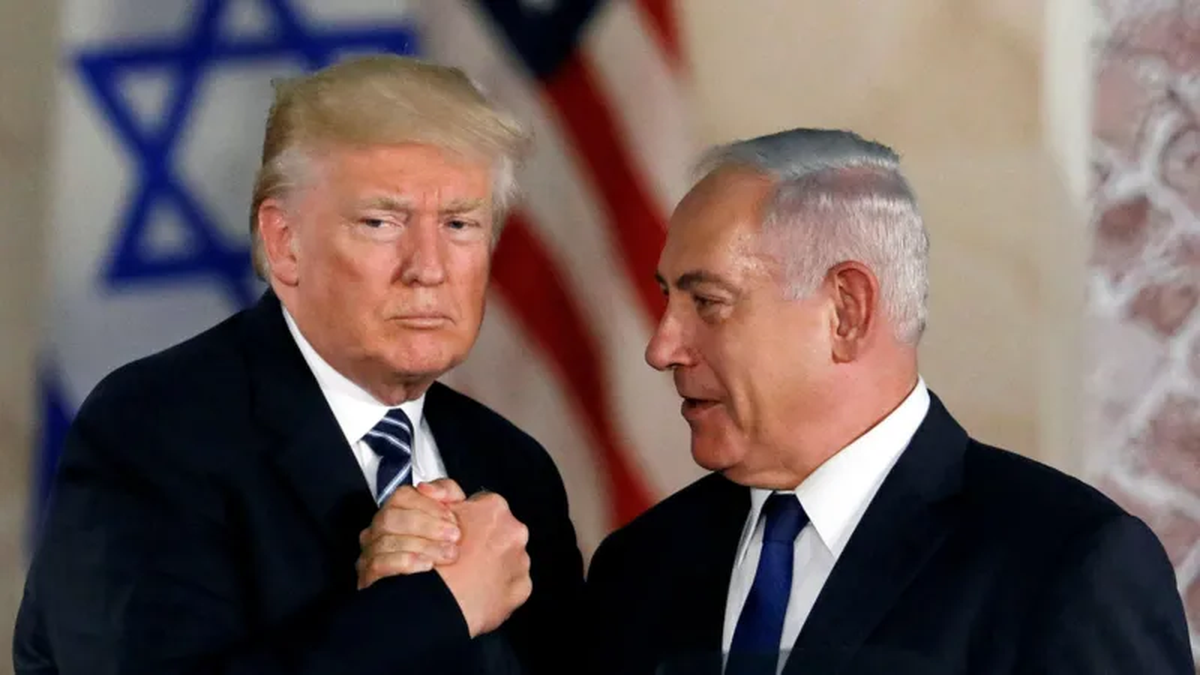In the case of food, the wheat In a few days, it had gone from a value of US$278 a ton on January 3, to reach its maximum just two months later, when it reached US$495 a ton on March 4 and then settled at around US$ s380 for a few months. Currently, the price of wheat is above US$260. The soy it experienced a similar phenomenon, with a strong escalation the days before February 23 when it reached its peak of US$363 a ton, a record that it would surpass in July.
The case of Petroleum it also showed an upward trend from the beginning of 2022 to skyrocket and exceed $100 a barrel of Brent crude on February 28. For the rest of the year, oil appeared to be around these values, trading largely above $100 until reaching $127 on March 8.
But despite not only the increase in the cost of these inputs and the sanctions that the G7 imposed on Russia after the invasion in an attempt to defund the Eurasian giant, trade did not suffer.
As reported by the World Trade Organization This week, world trade “continued to show resilience and its results exceeded the forecasts” made for 2022 and were located 3% above expectations as countries sought alternatives to replace the inputs provided by the countries in dispute.
Between March and November 2022, Ukraine’s foreign turnover plunged by 30% compared to the same period of 2021 in current prices, while Russia billed 15.6% more. The latter benefited from the rise in international prices, particularly oil and fertilizers, and the support of key trading partners, such as China and India.
direct effects of war
“The effects of the war are various, there are some temporary ones in terms of commodity prices, there has been a conditioning in the world, especially in energy production, and there Europe has the main problem because it was a large customer of Russia, which supposes not only a problem of shortages but also a change in the productive matrix in energy matters”, pointed out the foreign trade specialist Marcelo Elizondo in dialogue with Ámbito.
This phenomenon could be seen clearly in the case of Germany, which suspended the closures of nuclear power plants that it had projected for 2022 and obtained gas supplies from Saudi Arabia in record time, as well as the construction of a LNG.
“For countries like countries africans It was a problem of shortages because Ukraine was one of the main suppliers through programs of United Nations of Africa feeding programsElizondo added. This was a central factor when negotiating the reopening of Ukrainian ports for grain exports, an agreement promoted and supervised by Turkey.
In the same sense, the teacher and researcher in international relations referred paulo botta, the war also affected the main commodities of these countries. In the case of Russia, in addition to the cost of energy, the impact on the fertilizers. The increase in the cost of these inputs “has led to food and energy insecurity, being responsible for a large part of the inflationary process that the world has experienced last year, some countries have suffered more and others less.”
“Although the prices of some commodities have tended to fall, the danger of food safety has only remainedespecially in less resilient countries, mainly the countries of the Middle East”, he adds.
Effects in Argentina
“There was also an increase in agricultural commodities, which for some is a problem due to higher food prices and for others it has been a benefit, as in the Argentina, which exported 17% last year more than the previous year”, he stressed about the local impact of the rise in international prices.
In this sense, the Government released this week a report on the cost that represented this war in Argentina in an attempt to ask the IMF to take it into account when reviewing the goals committed in the renegotiation of the Extended Facilities Agreement. The negative effect on the trade balance amounts to u$s4,940 million according to a study by the Ministry of Economy, to which is added that the higher energy prices determined an increase in the subsidies granted by the government in this matter of $587,934 million.
“For Argentina the effect was negative, because it had an increase in energy imports measured in dollars, but the balance in general is a little more functional, because it had a historical record of exports of goods, and the reason was the best international prices,” Elizondo highlighted, in line with the I propose the impact on the country’s trade balance. In 2022 there were 2.5% fewer shipments measured in quantities, but 17% more measured in prices, which results in an increase in exports.
However, a benefit that arises for Argentina from the conflict is the “possibility of beginning to be seen as a potential recipient of investments for energy production”. But Elizondo is not so optimistic about it and points out that this is more potential than effective because the companies ask for elements that today Argentina does not give such as “exchange rate, legal guarantees, market and market prices. But there is a repositioning of Argentina in this sense and even of Mercosur”.
Some of this could be seen in the agenda of the Minister of Economy, Sergio Massain the G20, where the bilateral meetings that he maintained were strongly linked to energy investments in the country.
Although he does not deny the effect of the war on the acceleration of local prices, Elizondo points out that the international effect is not so relevant: “The problem of inflation in Argentina is not world inflation rather it is their local macroeconomic disorders”.
Regarding the impact in Argentina, botta notes that as a producer of agri-food “has not been affected, Rather, it has been a somewhat positive consequence, since prices have increased. But also because of the problems of our reliance on buying power, all the benefits that we could have gotten have disappeared.”
About a reconfiguration of the Business partnersBotta rules out that in the Argentine case there has been a change in this sense because especially “production is not very elastic and neither is demand”.
“Argentina has a problem derived from the geographical distance. It is very difficult for Argentina to take advantage of a window of opportunity, taking into account not only that we are far away, which makes logistics prices more expensive, which have been a very important issue, but also not having their own shipping companies it means that we cannot take advantage of it because we do not manage all the variables”.
geostrategic reconfiguration
“There was a realignment of the Westand. United States, Europe, Canada, Japan, Australia, South Korea, United Kingdom, are closer to each other. was also given a strengthening of the North Atlantic Treaty Organization (NATO)), which leads to another effect which is the exacerbation of the differences between blocks, the West on the one hand and a Closeness between non-Western countries that converge on certain positions: China is closer to Russia, also Iran”, he adds Elizondo on the consolidation of the global blocs.
Elizondo also highlights a new phenomenon in regards to global value chains, the friendshoring: “Countries and companies have begun to look more closely at who is who in value chains. Now there is a feeling that suppliers are chosen that guarantee security, certainty and compliance, the world is not deglobalized, but members are chosen in the chains based on their ability to generate confidence in the supply”.
overall inflation
For Elizondo, the war in regards to the Global inflation only exacerbated a phenomenon that was already taking place: “The main cause of inflation in the world was the mega issuance that they had made before the war, particularly in the pandemic. The war exacerbated that by creating a commodity supply problem.” However, the problem that stands out is that the acceleration of prices that motivated the war led central banks to strengthen their anti-inflationary policies, in particular the rise in rates by the United States Federal Reserve, which is generally a problem for global production and particularly for indebted countries.
The role of sanctions
Among the effects of the sanctions that the West imposed on Russia, such as the cap on the price of oil or the ban on operating with suppliers in the maritime transfer of their products, among others, Elizondo highlights the departure of 500 global companies from the country, in addition to the drop in GDP and the stock of foreign investment. “However, they were not as great in their impact as previously believed. Triangulations began to happen, China and Turkey appeared and began to act as bridges or substitutes,” he added.
Among the main reasons for attenuated impact sanctions, the expert highlights the role of global companies: “They have acquired enormous power and have managed to evade sanctions through triangulations and third markets. Global companies acquire an agenda of their own. The global value chains have acquired a political power and a technological capacity that exceeds that of the States and then there is an agenda of the big world companies that to a large extent have allowed them to adapt to the new scenario and for this reason the sanctions have not had as much impact”.
On the role of sanctions, botta shares the doubt about its effectiveness: “The impact was not as expected. There is a discussion about whether sanctions work, but Russia became the most sanctioned country in the world in a period of three weeks, surpassing even Iran, Syria, North Korea, countries that have suffered sanctions for decades. In the short term, they were not affected because Russia’s large exports, of the energy type, found buyers, and the increase in these products far exceeded the impact that the increase in financial costs could have.
However, highlights the possibility that in the medium term the Russian economy will see the effects of the war“not only because of the sanctions but also because of the emigration of many educated young people who have decided to leave the country due to political instability and military mobilization.”
Another element that influenced the less effective than expected of the sanctions is the role played by the large energy producers, since “especially Saudi Arabia, have not bowed to the sanctions and have continued in the field of OPEC.
Source: Ambito




